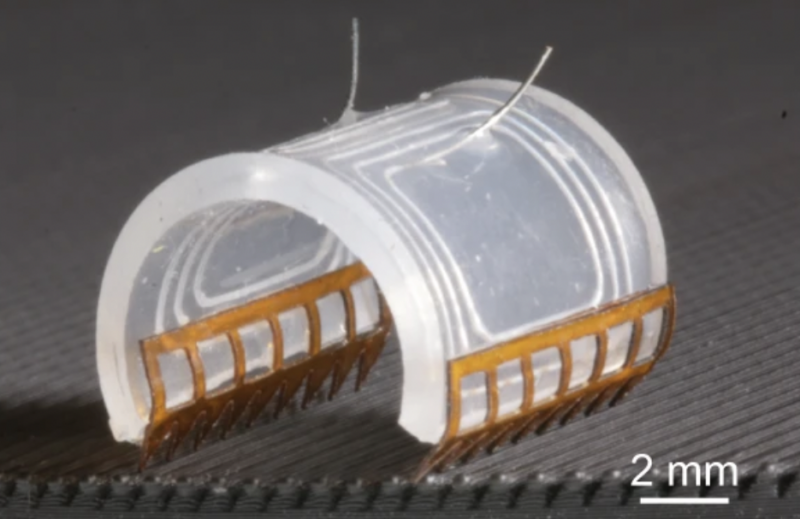Tiny robots made of “galinstan” can run faster than a (scaled down) cheetah

Enlarge (credit: Mao et. al.)
Scientists at Johannes Kepler University (JKU) have created steerable soft robots that are capable of running, swimming, and jumping at high speeds. During testing, the robots achieved a speed of 70 BL/s (body lengths per second). These results are striking because even a cheetah (the fastest land animal on Earth) can only run up to 23 BL/s. But don't expect absolute speed records, as the robots have millimeter-scale bodies-although these tiny machines are probably the fastest soft robots on the planet.
Soft robots are different from the conventional robots you see in factories, restaurants, and science exhibitions. They are constructed using flexible materials like polymers and shape-memory alloys (these alloys change their form with a change in temperature). Soft materials allow the robots to function in a similar way to that of a living organism (or a living tissue). By contrast, conventional robots are made from rigid materials like plastic, aluminum, and metal.
For a long time, scientists have been trying to create soft robots fast enough to work in extreme environments where no other machines would function. Such robots could play an important role in the medical field. For instance, ultrafast robots might replace invasive methods like a colonoscopy. Doctors could use fast soft robots to check for any anomalies in body organs (like the stomach) that are difficult to examine with conventional diagnostic robots.